Thonet - A milestone of industrial design and the beginning of the modern furniture industry.
Thonet is one of the oldest family-owned furniture manufacturers in the world and has gone down in history for its revolutionary production of café furniture and its iconic chair No. 14 (now 214).
Company History
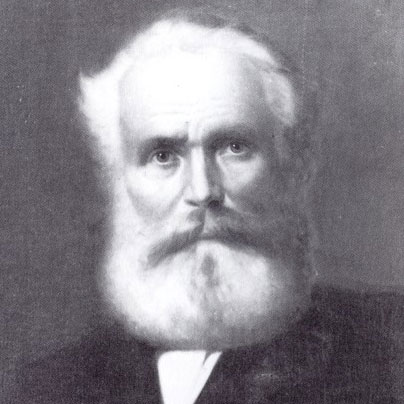 Thonet's success story began as early as 1819 in Boppard on the Rhine, where Michael Thonet ran his bentwood workshop. There, in 1830, he was the first to develop a process for bending solid wood using steam. A revolution in the wood industry. By using a tension band, the expansion of the outer zones is limited and the inner zone is more compressed in return. Beforehand, the wood is made soft and elastic by means of steam. The result is that the outside does not splinter and the wood is permanently bent. For the wood industry, this innovation meant much more efficient work. Wood loss was thus reduced to a minimum and new shapes could be created.
Thonet's success story began as early as 1819 in Boppard on the Rhine, where Michael Thonet ran his bentwood workshop. There, in 1830, he was the first to develop a process for bending solid wood using steam. A revolution in the wood industry. By using a tension band, the expansion of the outer zones is limited and the inner zone is more compressed in return. Beforehand, the wood is made soft and elastic by means of steam. The result is that the outside does not splinter and the wood is permanently bent. For the wood industry, this innovation meant much more efficient work. Wood loss was thus reduced to a minimum and new shapes could be created.
In 1842, Prince von Metternich became aware of Thonet's work and brought him and his family to Vienna. He perfected his bentwood technique in the 1850s. In 1853 he signed his company over to his sons, and from then on the company was called "Gebrüder Thonet". The company achieved its great breakthrough in 1859 with the Viennese coffeehouse chair - Chair No. 1 4. To this day, the chair is the most successful industrial product of all time and Michael Thonet is considered a pioneer of industrial design. With him began the era of the modern furniture industry.
There was room for 36 disassembled No. 14 chairs, including screws, in one cubic meter of a transport crate and they could thus be shipped all over the world at low cost. They were assembled on site. By 1930 alone, 50 million chairs had been produced and conquered the cafés of Europe's metropolises. The No. 14 chair also changed the look of the city's public spaces. Heavy upholstered furniture was replaced by the light, graceful bistro chairs, which could be used flexibly and stowed away to save space.
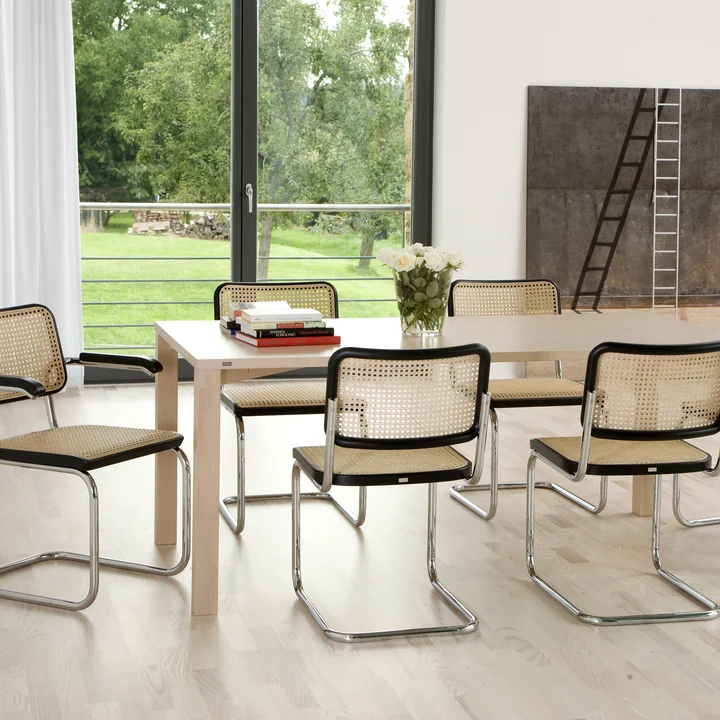
The S 32 and S 64 chairs by Marcel Breuer for Thonet in the ambience view. The free-swinging chairs made of tubular steel, wood and wickerwork have been produced by Thonet since 1930.
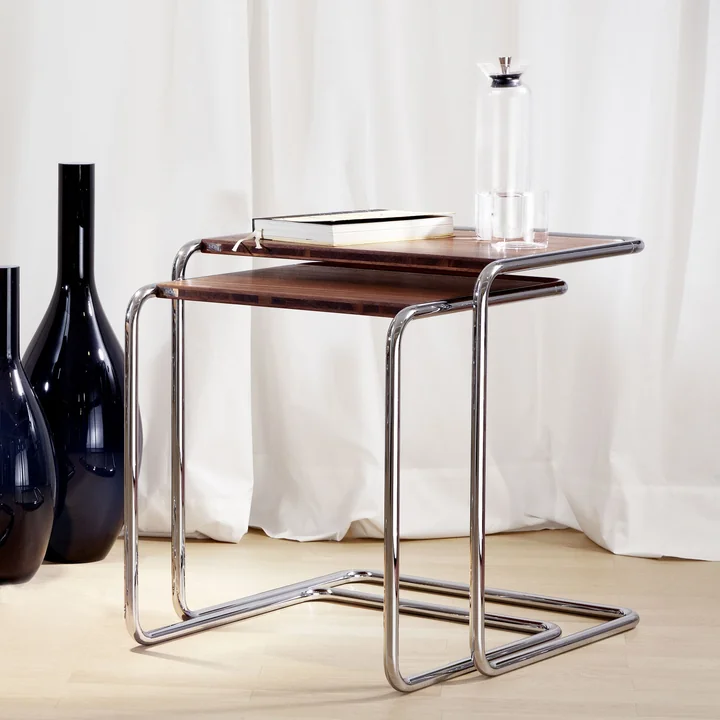
B 97 Set table from Thonet : The B 97 table was designed by Marcel Breuer back in 1933 and is now one of the classics among tubular steel furniture.
Stainless steel furniture complements the range
From Vienna, the brothers expanded the Thonet empire. They had factories built in various European countries. During this time, they also received support and encouragement from Emperor Franz Josef I of Austria-Hungary. However, their patriotic loyalty to the emperor caused the company to slip into a crisis at the end of the First World War. The Thonet brothers therefore decided to merge with the Jewish merchant Leopold Pilzer from Hungary and his Mundus joint stock company in 1921, making them the largest furniture manufacturer in the world.
It was Pilzer who also established steel furniture in the Thonet range. Thonet recognized the potential of curved steel furniture early on and secured the rights to designs by numerous Bauhaus representatives such as Ludwig Mies van der Rohe, Mart Stam and Le Corbusier. Marcel Breuer's cantilever chair for Thonet has since become one of the most important innovations of the last century. The clear appearance of the steel furniture, which is considered a milestone in design history, was an expression of a new everyday culture and architecture called "New Objectivity". At that time, Thonet was not only the market leader for bentwood furniture, but was also able to establish itself as the number 1 in the steel furniture industry.
In Frankenberg, Thonet's youngest factory, built in 1889, innovative products are still being developed today, always with a focus on durability and convincing through material quality and a timeless design language. The factory of today's Thonet GmbH is equipped with the latest production technology as well as specific know-how gathered in more than two centuries of company history.
Sustainability
The products of the traditional company Thonet are characterized by their longevity and do not harm the environment either during production or disposal. Before introducing new products, detailed attention is paid to sustainability, environmental friendliness and the recyclability of materials, which is already at least 95%.
Thonet obtains 100% of its electricity from ecological and sustainable energy sources. In addition, the company invests in recycling plants for solvents, working to reduce its environmental footprint. The wood processed comes from sustainable forestry and is PEFC certified.
Thonet has been awarded the Green Globe certificate for 10 years in a row, making it a Platinum member of the organization that evaluates sustainability in terms of environmental friendliness, social responsibility and economic viability in companies.
Website by Thonet

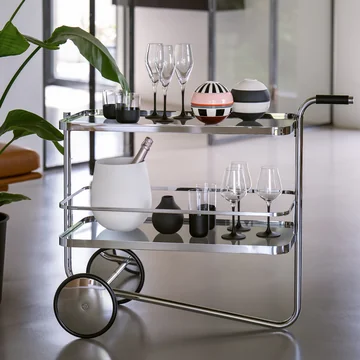
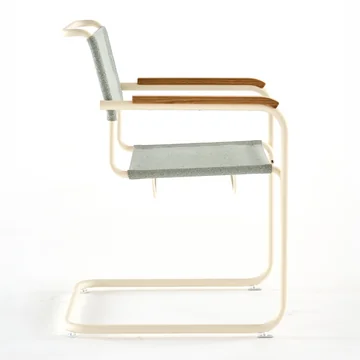
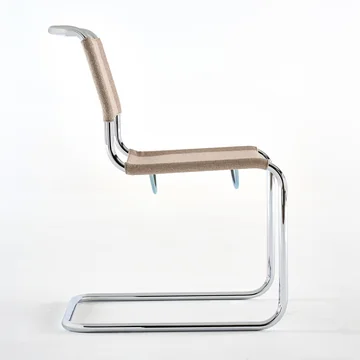
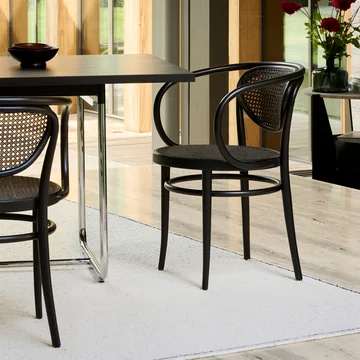
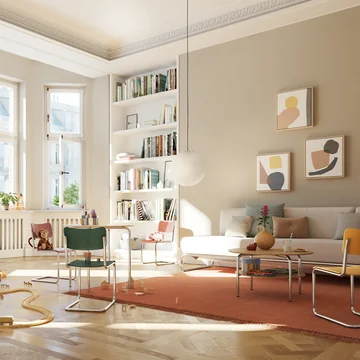 For the little ones
For the little ones Side tables and set tables
Side tables and set tables Iconic chairs
Iconic chairs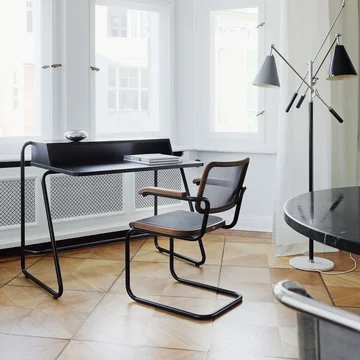 Timeless desks
Timeless desks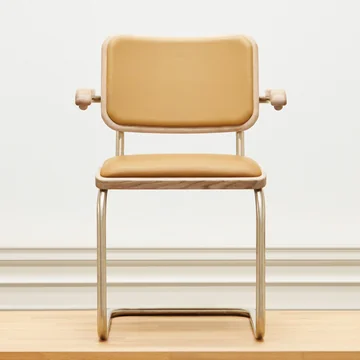 JS . THONET A PERSONAL INTERPRETATION BY JIL SANDER
JS . THONET A PERSONAL INTERPRETATION BY JIL SANDER Michael Thonet
Michael Thonet
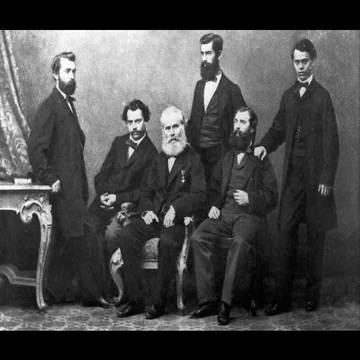 Thonet Brothers
Thonet Brothers
 Mart Stam
Mart Stam
 Marcel Breuer
Marcel Breuer